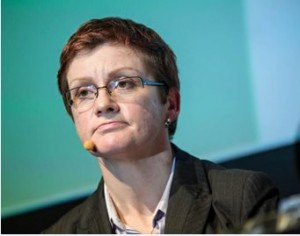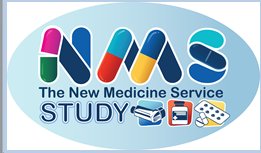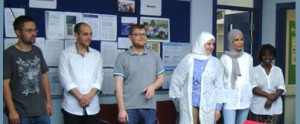March 6, 2015, by Editor
Rachel Elliott’s blog for International Women’s Day
Life skill 1: Changing my mind
I love organic chemistry. Before I started my ‘A’-levels, I had read all the textbooks. I chose a Pharmacy degree so that I could learn medicinal chemistry, and l liked the security of a professional qualification. Planning on going back to uni for a PhD in medicinal chemistry, I focused on gaining an industrial placement for my pre-registration training. Then, despite not having much love for pharmaceutics, and not expecting a first class degree, due to my rather selective work patterns, as part of my pre-reg year with Merrell Dow, I spent six months training in a hospital pharmacy. One month in, I was hooked on the NHS. All change….. instead of the PhD, I started as a resident pharmacist at Charing Cross Hospital, London.
Life skill 2: Being in the right place at the right time
I was the renal pharmacist during the day, on the same floor as the intensive care unit, and due to staff illness and the ICU renal specialisms, I ended up first covering, and then becoming one of the first specialist ICU pharmacists in the UK. Intensive care medicine allowed me to develop a love of complex clinical problem-solving, pharmacokinetics, real multidisciplinary clinical teams and the NHS. My boss happened to know a lecturer at the London School of Pharmacy, who happened to know a professor of health economics, and there happened to be funding for social science training in pharmacy. Somehow, in 1992 I ended up at Brunel University starting a PhD in the economics of intensive care.
Life skill 3: Not being very fashionable
Health economics was not very fashionable in 1992 and I was challenged about “not caring about patients any more”. The moral maze of what we could afford to do in health care and how we chose which treatments to fund unmasked the deepest values in society. I was hooked, even though I had to learn (and still am working on) a lot of statistics, economics, policy and long words. Once at the University of Manchester as Clinical Lecturer I got interested in the economics of medicines non-adherence. Again I was told this wasn’t very topical, but it seemed important to me….understanding why people didn’t take medicines, the most common intervention in any health care system, and the human and economic impact of that. It’s been my main research area ever since. A key piece of work developing and evaluating an intervention to increase adherence led by Nick Barber was used to support the New Medicines Service, I led the RCT and economic evaluation, and now NMS is permanently funded. Not so unfashionable now…….
Life skill 4: Finding smart people to learn from
Being a bit of a pharmacist, and mostly a health economist, a year as a Harkness fellow at Harvard, working with people from other countries, appointment to a NICE appraisal committee, moving to a Professor position at the University of Nottingham, working with the NHS and the Dept Health, are some of the ways I’ve come into contact with bright, motivated people from whom I can learn.
I still love organic chemistry. I still love intensive care medicine. I still love health economics. I definitely still love the NHS. However, I haven’t quite decided what to do when I grow up yet.
Professor Rachel Elliott is Lord Trent Professor of Medicines and Health in the Division for Social Research in Medicines and Health in the School of Pharmacy
No comments yet, fill out a comment to be the first




Leave a Reply